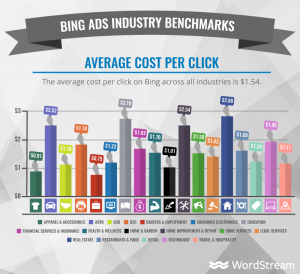Confidence Among C-Suite Execs Plummets: 7 Trends For 2021 To Dig Them Out
Deloitte wanted to better understand how people and brands responded to the pandemic and, most importantly, how some brands were able to flourish even during turbulent times.
Eighteen months ago, Deloitte polled executives on their ability to influence their peers and make a strategic impact. A new study asked 405 executives the same questions in May of 2020, and the findings show that C-suite confidence has plummeted across the board.
During difficult times, such as a pandemic, executives typically prioritize survival over human connection and growth. Although executives said they feel the pressures of an uncertain future, they have managed to change their strategies in mid-flight.
The Deloitte 2021 Global Marketing Trends Study includes data from two reports.
First, the Global Marketing Trends Consumer Pulse Survey polled 2,447 global consumers ages 18 and above in April 2020 in the United States, the United Kingdom, Mexico, China, South Africa, Qatar, the United Arab Emirates, and the Kingdom of Saudi Arabia.
The Global Marketing Trends C-suite Survey polled 405 U.S. C-suite executives from global companies in May 2020. This survey asked CMOs, CFOs, COOs, and CHROs their thoughts on a variety of topics related to their response to COVID-19.
C-suite executives responded to the COVID-19 pandemic in a different way. The majority prioritized improving efficiency and productivity over more human-centric initiatives such as strengthening customer engagement, retaining talent, and increasing the company’s impact on society. In moments of high stress and low certainty, almost no one thought about growing revenue or disrupting their industry.
When asked how their company interacted with consumers throughout the pandemic, 67% of companies said they increased their presence on social media, 57% cited significant alterations to digital platforms to meet customer needs, and 49% said they increased the number of virtual workshops and events. Some 35% also listened to customer feedback to rapidly prototype new offerings.
Deloitte also polled consumers. The response showed that as times got tougher, they expected more from the brands they frequently use.
Consumers are looking for brands to help. Nearly four in five people could cite a time a brand responded positively to the pandemic, and one in five strongly agreed it led to increased brand loyalty on their part.
More than 25% of those who noticed brands acting in their own self-interest walked away from those brands.
More than 70% agreed they valued digital solutions that deepened their connection with other people, and 63% believe they will rely on digital technologies more than they did prior to the pandemic, and will continue to do so even after it subsides.
Fifty-eight percent of respondents could recall at least one brand that quickly pivoted to better respond to their needs, and 82% said this led to them doing more business with the brand.
The pandemic has changed the playbook. The data from these two studies helped Deloitte create seven trends for 2021.
- Purpose – Brands must know why they exist and who they serve.
- Agility — Marketers should leverage relevant digital tools and design an organizational road map to make agile marketing a reality.
- Human Experience — Pivot thinking from speed-to-market and efficiency plays to fostering the human connection.
- Trust — Brands should look at what people value rather than what they look like, and ensure their promises are in sync with their competence to deliver on them.
- Participating — Marketers can benefit by crafting an engagement strategy that leans into customer participation at its deepest levels.
- Fusion — Organizations can better help the people they serve by creating innovative experiences through cross-industry partnerships.
- Talent — As the marketing landscape undergoes rapid changes, talent models should evolve in-step to position marketing as a competitive differentiator.
(11)
Report Post







